Guides
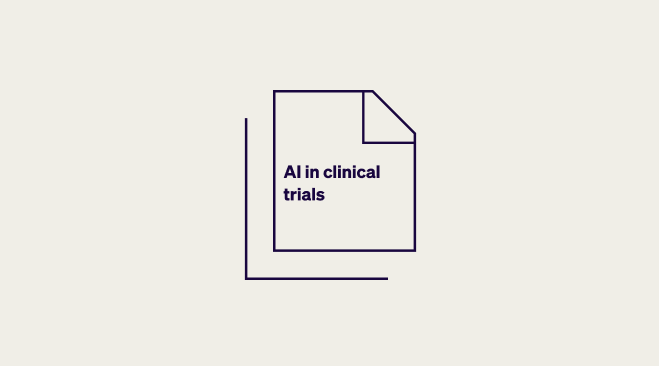

Building blocks: The ultimate guide to AI in clinical trials
Explore how artificial intelligence (AI) is fundamentally transforming every facet of clinical trials, from initial protocol design and patient recruitment to data management and regulatory approval. This comprehensive guide provides an authoritative, in-depth look at AI's role in accelerating drug development and improving patient outcomes, with special focus on emerging agentic AI technologies.


Building blocks: Agentic AI is Transforming trial design, management, and outcomes
Discover how Agentic AI is revolutionizing clinical trials by optimizing efficiency, accelerating drug development, and improving patient access to therapies.


Back to basics: Agentic AI and how it’s impacting clinical trial research
Since the release of OpenAI’s ChatGPT in 2022, the buzz around artificial intelligence has been impossible to ignore. From advertisements during the SuperBowl to webinars and working groups, the impact of artificial intelligence has been felt in almost every sector of our world.
But, what if we told you the most transformative shift is still on the horizon?
When ChatGPT first released it changed the way the world, including clinical research, worked. Now NVIDIA, one of the most premier companies leading the way in the development of AI, has stated that they expect the development of Agentic AI, a new type of artificial intelligence to “change the way we work in ways that parallel how different work became with the arrival of the internet.”
This means agentic AI may have a much bigger impact than even generative AI did years back.
So, if you’re curious about agentic AI, read on as we delve into its nature, differentiate it from generative AI, and reveal its transformative role in clinical research."


How to improve eCOA data quality in clinical trials
Electronic clinical outcome assessments (eCOA) have become essential for modern clinical trials, offering numerous advantages over traditional paper-based methods. However, the benefits of eCOA can only be fully realized if the data collected is of the highest quality. Ensuring data quality in eCOA clinical trials requires a multifaceted approach, encompassing platform design, patient engagement strategies, robust data validation procedures, and strict adherence to regulatory guidelines. This blog post explores key strategies for achieving and maintaining data quality throughout the eCOA process.
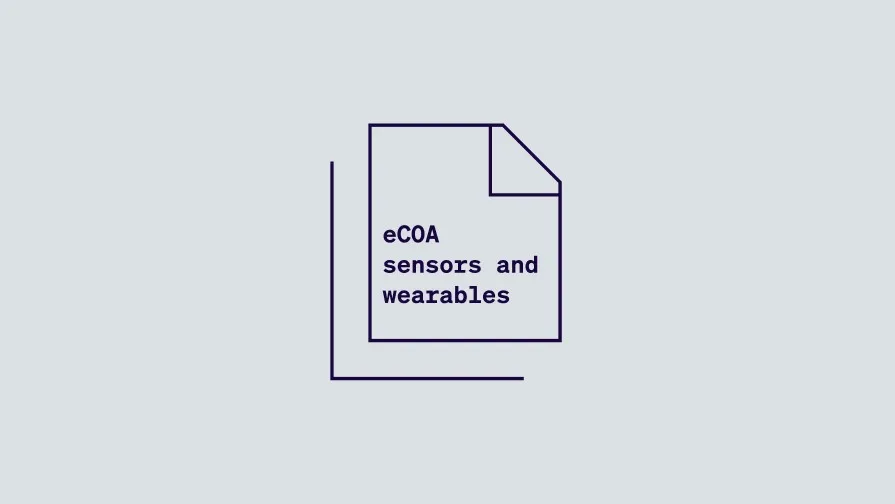

The role of eCOAs and wearables in modern oncology clinical trials
In the rapidly evolving landscape of oncology clinical trials, the integration of electronic Clinical Outcome Assessments (eCOA) and wearable technologies is revolutionizing how data is collected and patient experiences are monitored. These technologies offer unprecedented opportunities to enhance data quality, improve patient engagement, and enable real-time tracking of treatment efficacy and side effects. This blog post delves into the pivotal roles that eCOA and wearables play in modern oncology clinical trials, highlighting their impact on patient-centric research and the advancement of cancer care.


Top technical considerations with eCOA in clinical trials
Explore the prevalent challenges encountered in eCOA clinical trials, from technical issues and patient adherence to data security and regulatory adherence, and discover strategies for mitigation.
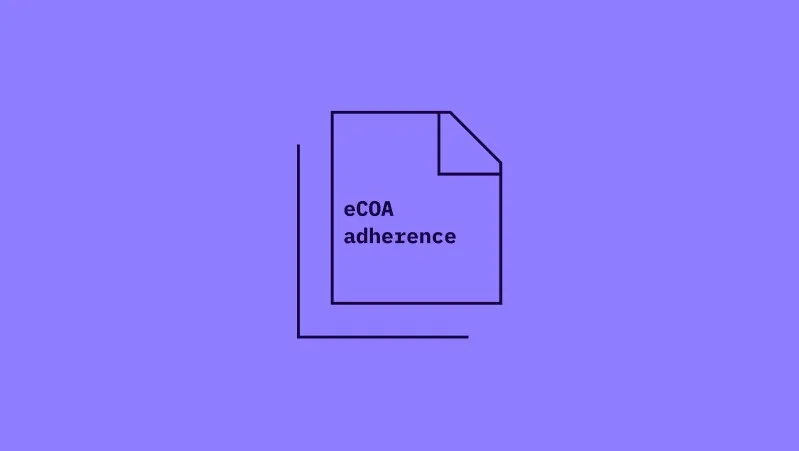

Optimize patient adherence by implementing eCOA in clinical trials
Patient adherence is a must for any clinical trial to be considered successful. When patients consistently and accurately complete their electronic clinical outcome assessment (eCOAs) the quality and reliability of the data significantly improve, leading to more robust trial outcomes.
However, maintaining high patient adherence can be challenging, particularly in long-term studies or complex assessments. This blog post explores effective strategies to optimize patient adherence in eCOA clinical trials, focusing on patient-centric design, clear communication, and strategic technology implementation.


How to choose the best eCOA vendor for your clinical trial
Navigating the complexities of eCOA vendor selection can be tough. This comprehensive guide provides a step-by-step approach, covering everything from vendor evaluation to successful implementation, ensuring your clinical trial's success.


Implementing eCOA software in clinical trials: A How-to guide
Electronic clinical outcome assessments (eCOAs) have revolutionized clinical trials, offering significant advantages over traditional paper-based methods. By enhancing data quality, streamlining data collection, improving patient engagement, and enabling real-time data access, eCOAs have become indispensable tools in modern clinical research. However, successful eCOA implementation requires careful planning, meticulous execution, and a deep understanding of the regulatory landscape. This comprehensive guide provides a detailed roadmap for implementing eCOAs effectively, covering key aspects from study design to future trends.
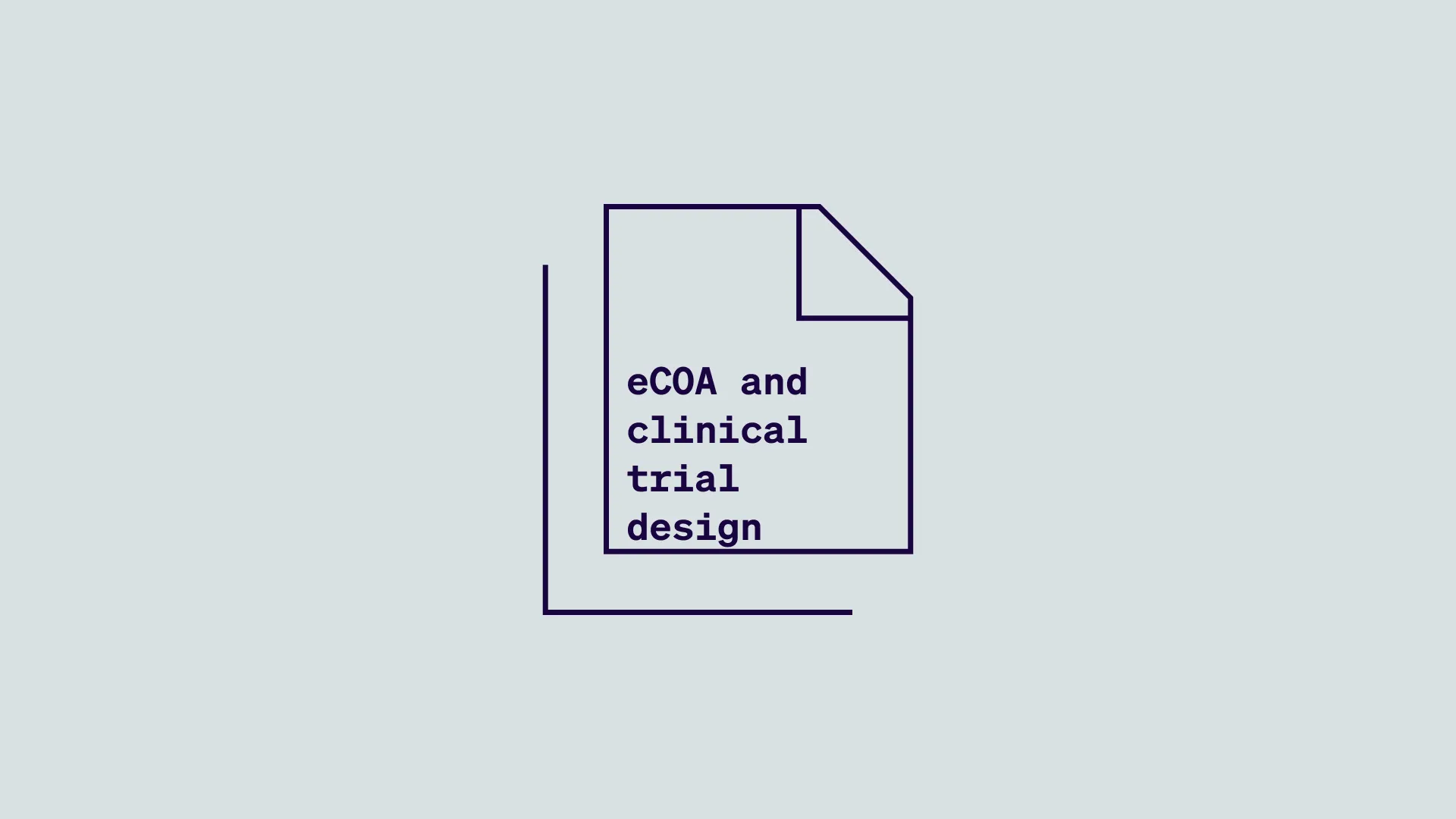

Transforming clinical trials: The impact of eCOA on trial design
Discover how electronic Clinical Outcome Assessments (eCOA) are revolutionizing clinical trial design. This post explores how digital tools enhance patient engagement, improve data accuracy, and drive the shift toward decentralized clinical trials. Dive in to see why integrating eCOA is essential for modern, efficient clinical research.


The critical role of eCOA software in shaping modern clinical trial design
Discover how eCOA software is reshaping modern clinical trials by enabling decentralized designs, enhancing patient adherence, and optimizing data collection through real-time digital tools. Learn how cloud-based solutions and AI are driving the next evolution in clinical research.
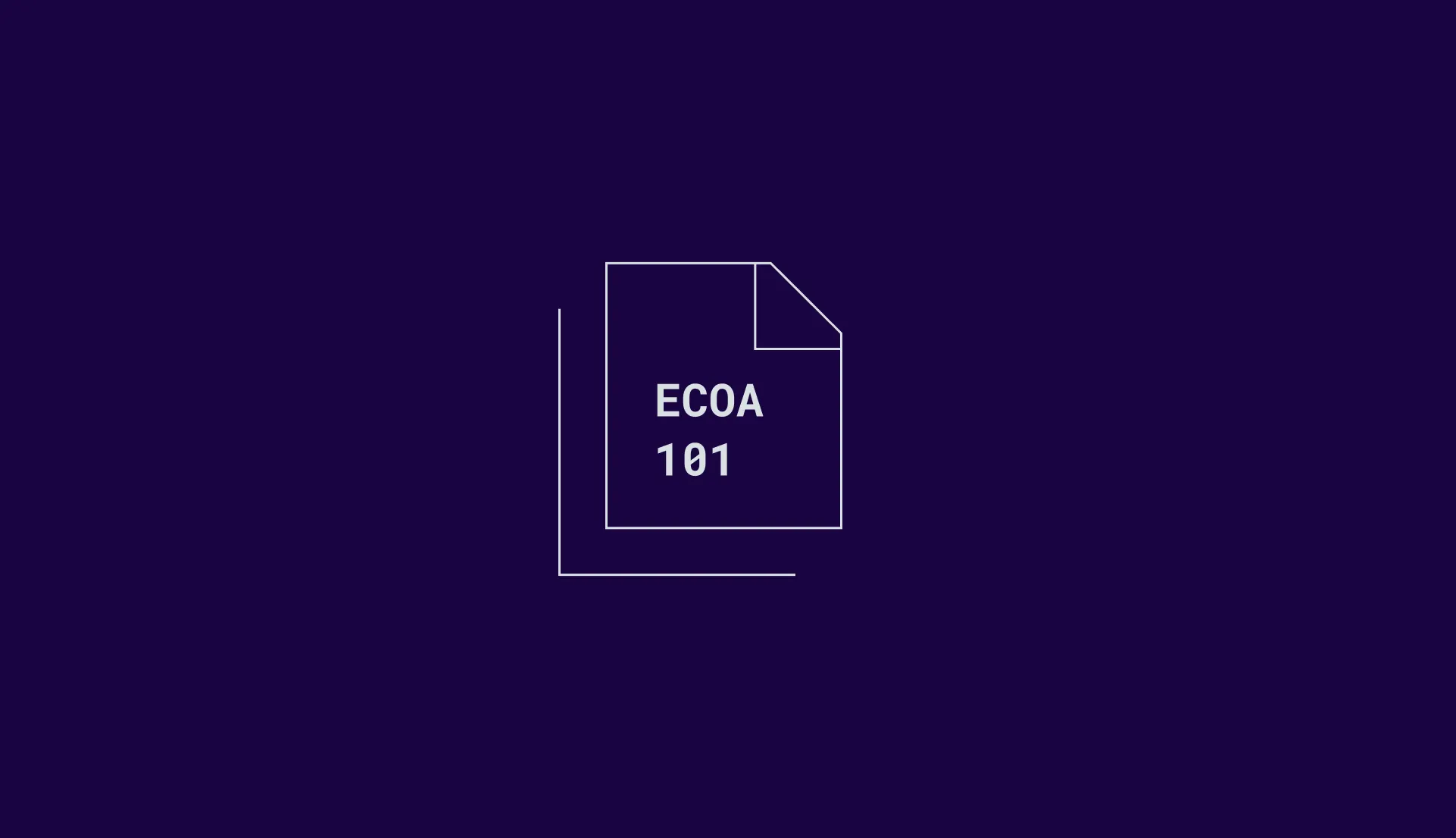

What is eCOA? An overview of eCOA in Clinical Trials
What is eCOA?
As FDA Principal Deputy Commissioner Janet Woodcock said in a 2015 Clinical Outcome Assessment Public Workshop, “It turns out that what is really bothering the patient and what is really bothering the doctor can be radically different things...patients are true experts in their disease.”
Clinical outcome assessments (COAs) have been key to capturing a comprehensive picture of patient experiences and treatment outcomes in today’s research landscape for decades. Integrating COAs into trial protocols bolsters our treatments' scientific integrity and enhances our ability to understand the real impact of interventions on patients.
COAs (called eCOAs when captured electronically) are essential to understanding whether a drug reduces symptoms, improves patients’ quality of life, and improves their ability to perform activities they care about.
Since the mid-2010s, electronic clinical solutions, like eCOA, have rapidly replaced their paper counterparts. Electronic Clinical Outcome Assessments comprise systematized digital methods for capturing patient-centered outcomes in clinical trials. These systems utilize validated electronic interfaces to collect, store, and analyze patient-reported data, clinician observations, and performance metrics.



.webp)
